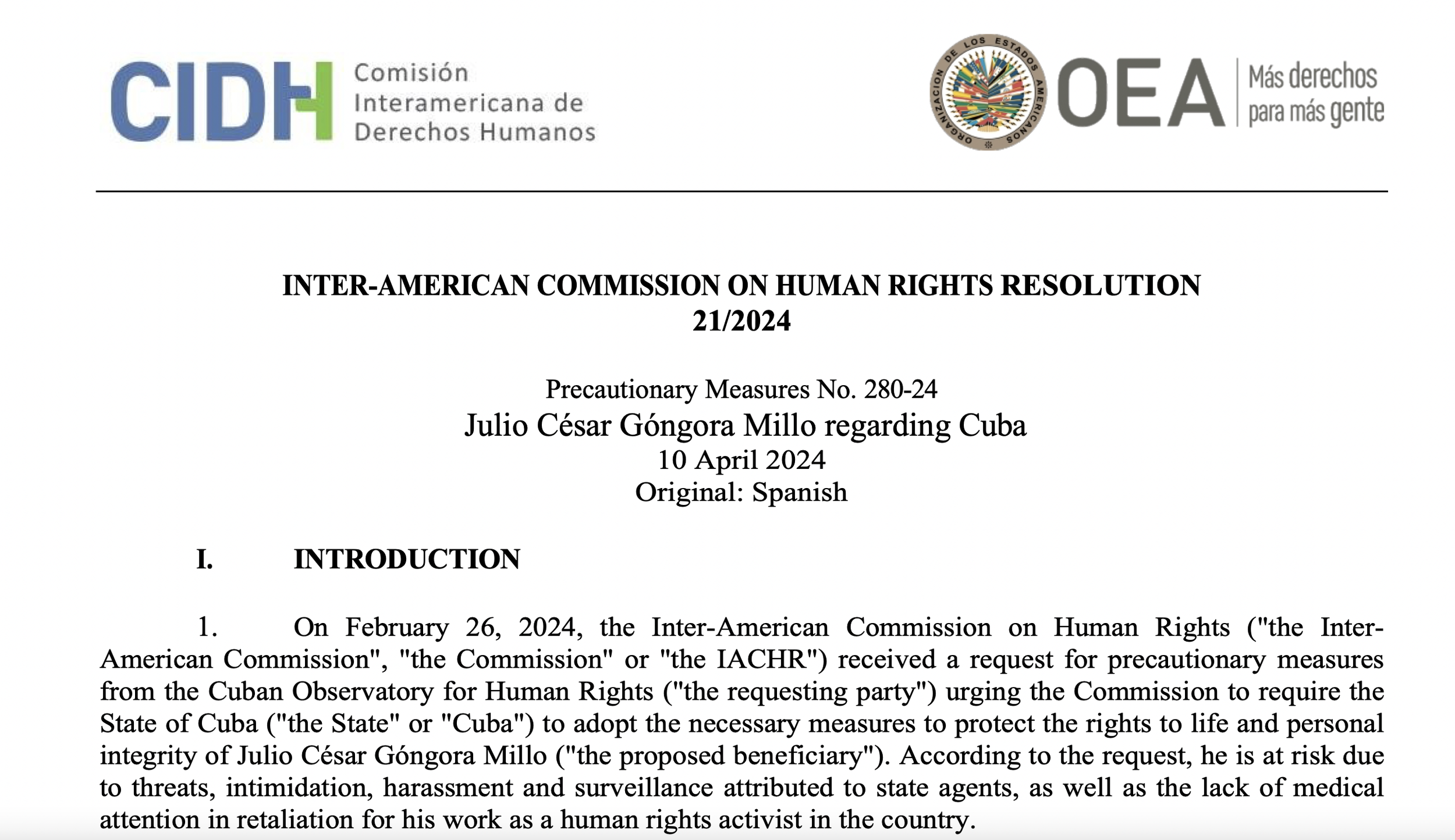IACHR Grants Precautionary Measures to Cuban Activist Julio Cesar Gongora.
On April 10, 2024, in response to a request from the Cuban Human Rights Observatory, the Inter-American Commission on Human Rights has granted Julio César Góngora Millo precautionary measures.
What is a precautionary measure?
A precautionary measure is a protection mechanism of the Inter-American Commission on Human Rights (IACHR), through which a State is requested to protect one or more persons facing a serious and urgent situation that presents a risk of irreparable harm to their rights. Precautionary measures have two functions: a protective and a precautionary function. Both functions are related to the protection of the fun- damental rights described in the Rules of Proce- dure of the inter-American system. Through the protective function, precautionary measures seek to avoid irreparable harm and preserve the exer- cise of human rights. Through the precautionary function, the measures aim to preserve rights at risk of potential harm while the inter-American system resolves a petition under review. Their ob- ject and purpose are to ensure the integrity and effectiveness of a decision on the merits. There- fore, they aim to avoid any harm to the claimed rights, as this could render the final decision moot or diminish its practical effects (effet utile). See, OAS Internatinal Booklet on Precautionary Measures for more information.
Julio Cesar Góngora Millo is a Cuban citizen subjected by the Cuban regime to a situation of extreme vulnerability due to a disability, currently being denied an MRI and specialized medical attention, including surgery to close the wound caused by a permanent cystostomy he has endured for 11 years. This denial is a direct consequence of his active advocacy for human rights. The Cuban regime's intention is clear: by withholding medical care, they aim to keep him permanently incapacitated, thus impeding his ability to continue advocating for human rights.
In the granting of precautionary measures, it becomes evident that public health in Cuba, contrary to the official and propagandistic narrative that speaks of it as a social achievement, is not a right but is used as a weapon by the regime to silence human rights activists. For example, in paragraph 7, Gongora Millo "has been denied an MRI, allegedly because this service is not available for "people who oppose the political system." The activist was also denied access to his medical record at Abel Santamaria Hospital in Pinar del Rio.
Furthermore, the violation of fundamental human rights is also evident through the following repressive acts: (i) threats attributed to state agents against the proposed beneficiary and associated persons; (ii) surveillance by state agents to prevent his participation in events commemorating International Human Rights Day; (iii) constant surveillance at his home by Cuban state security agents; (iv) siege and direct harassment by state agents; (v) prevention by state agents from leaving his home; and (vi) cuts to the proposed beneficiary's internet service, among others. The incidents faced by the proposed beneficiary seem aimed at preventing him from meeting with other members of his organization and participating in civic activities of independent political nature.
